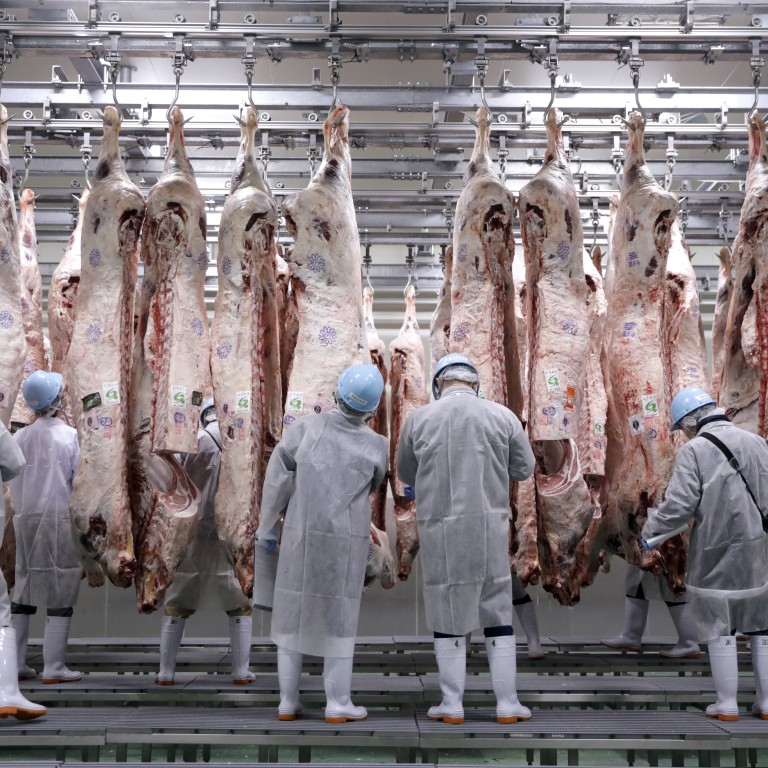
China lifts 18-year-old ban on Japanese beef imports as Beijing seeks to warm trade ties with Tokyo
- The removal of the ban on Japanese cows under 30 months old came before this week’s visit to China by Japanese Prime Minister Shinzo Abe
- China announced it will reduce tariffs on frozen pork from 2020, while also confirming pork imports in November surged more than 150 per cent from a year ago
China has lifted an 18-year-long ban on beef imported from Japan in a fresh sign that Beijing is trying to warm its relationship with Tokyo, as well as feed a growing appetite for meat.
The import ban on beef from Japanese cows under 30 months old has been immediately removed, according to a notice published by the General Administration of Customs on Thursday, paving the way for one of the most popular Japanese agricultural products to return to the dining table of the world’s largest meat consumer after nearly two decades.
The decision, which also includes lifting restrictions on Japanese pork and mutton, came before this week’s visit to China by Japanese Prime Minister Shinzo Abe, his second trip to Beijing since bilateral ties between Asia’s two biggest economies began thawing last year.
China’s levels of beef imports have been rising strongly as Chinese consumer’s appetite for high-quality meat grows with their income levels. In the first 10 months of 2019, China imported 1.28 million tonnes of beef, a rise of 54.5 per cent from the same period last year, according to China’s Ministry of Agriculture, with the majority coming from Australia, Brazil and Argentina.
China placed the import ban on Japanese beef in 2001 after an outbreak of BSE, also known as mad cow disease, but Chinese consumers’ appetite for the world famous wagyu beef resulted in rampant smuggling, and in 2015, Shanghai police arrested a gang of 30 for smuggling Japanese beef into China.
A Chinese manager of a beef trading firm based in Japan, who only gave his family Zhong, said that smuggling of Japanese beef into China was rampant due to the strong demand, and that the illegal business is “an open secret”.
There’s supply as long as there’s demand. Chinese consumers want Japanese beef with or without the ban
“There’s supply as long as there’s demand. Chinese consumers want Japanese beef with or without the ban,” Zhong said.
The Japanese side has repeatedly requested for China to lift the ban and the two countries finally agreed to an animal health and quarantine deal a month ago during a visit by Chinese Foreign Minister Wang Yi to Japan.
The Japanese government said earlier this month that it hopes to double the country’s output of wagyu beef, known for its tenderness and marbled fat, to 300,000 tonnes by the financial year of 2035 to meet rising overseas demand.
China lifted its ban on US beef imports in 2017 after 14 years, however, it failed to make significant inroads into the Chinese market after Beijing’s tariffs made it less competitive compared to products from other countries.

